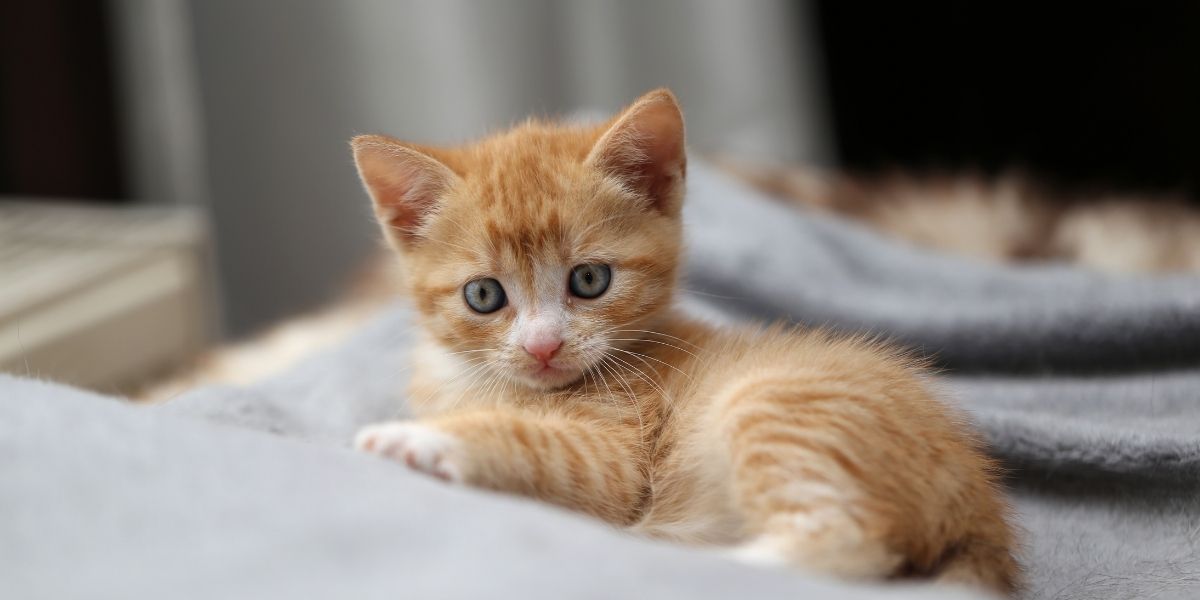Kitten – Care Tips
Kittens are cute and deserve to be pampered by family members. You can’t help but love those tiny, adorable creatures. Kittens need careful care, as they are fragile, defenseless animals that need to adapt to the new environment. They need food that suits their age to grow up healthy. The cat’s mother will be with them until weaning. From then on, the kittens will have to fend for themselves. Owners need to pay attention to their pets for all their needs such as hygiene, food, or sleeping. Today’s article will present tips for caring for kittens, so that little cats have a healthy and harmonious development.
Kittens – the first weeks of life. Feeding
Kittens have a constant evolution, and after 12 months, they reach the stage of adult cats. Until then, the owners must pay special attention to the kittens to ensure that they do not lack anything and that they will not have health problems. The first two weeks are crucial for kittens, being a delicate time. The kittens will be fed milk from their mother, and after five weeks, they will be weaned and eat solid food. If the kittens’ mother refuses to feed them or you find the little animals on the street and have adopted them, you should provide them with a milk substitute for about 3-4 weeks. Feeding bottles should be carefully selected to have a pacifier that stimulates the cat’s sucking reflex. Remember to sterilize the bottle before each use.
Kittens less than two weeks old should be fed every 3 hours. Between 2-4 weeks, you will feed them once every 6 hours. Most kittens are intolerant to cow’s milk, so they should not be provided baby milk powder. You need to choose a particular dairy that you can find in veterinary offices or specialty stores.
At one month of age, kittens will start eating solid food, but not dry food. You will gradually introduce moist food so that the little cats can adapt to the food change. It is advisable to buy food specifically for chickens, containing more calories and a higher dose of vitamins than that found in adult cat food. Biotur provides you with quality cat food, 100% natural, without dyes, preservatives, or flavorings. CHICOPEE CV CAT KITTEN PATE BEEF AND CHICKEN AND HUNTING is complete wet food, with beef, chicken, and game for kittens from 1 to 12 months.
According to the leaflet, if you provide extra food for kittens, it is advisable to calculate their daily requirement. It is also good to have a weight record of observing body changes. When feeding baby kittens with the bottle, they should be kept with the chest raised and should not be held like a baby on its back, as the milk may reach the level of the trachea. Position the kitten as if it were breastfed by its mother: sitting on a flat surface, leaning on its chest and with its head raised. The nipple of the bottle will be slightly tilted so that the kitten can easily reach the food source. After feeding, it is advisable to massage the back of the baby like a baby.
A substitute for cat’s breast milk, colostrum, is Lactadiet.
Lactadiet is instant breast milk based on skim milk, vitamins, trace elements and fish oil rich in Omega 3 (DHA & EPA), which provides the right nutrients to facilitate the normal development of the chicks, improving brain and visual development. Natural colostrum helps to strengthen the immune system. It is also recommended in case of lactation disorders, and when milk secretion is insufficient.
Kittens – hygiene and vaccination
Kittens are unable to defecate until they are three weeks old. Therefore, the baby’s mother will help them and lick them in the genital and anal area to stimulate this process. It is advisable to isolate kittens from other animals so that there is no risk of infection with various diseases. You can clean the kittens with a damp cloth and then dry them with a soft cloth. Between 3 and 8 weeks, the kittens will start to explore to have a constant temperature, and you will even notice the appearance of the first teeth. From now on, it is recommended to put your cat near the place where a litter sleeps to stimulate her to defecate there. Most of the time, cats will learn to use a litter box independently. From the age of 8 weeks, kittens can be weaned and start eating solid food.
The vaccination schedule will start at the age of two months, and 3 and 4 months, they will receive booster doses. Annual vaccination will be required for any cat. Thus, the cat will have a robust immune system and cope with the bacteria it may encounter. Internal and external vaccination is also needed to have iron health. Internal deworming is done first at six weeks. Then every two weeks. It is recommended to administer the deworming scheme every three months. External deworming is essential in kittens, using anti-parasitic products for juniors.
Kittens – Sterilization
If you no longer want other kittens, you can neuter your pet from the age of 5-6 months. This procedure is also good for the little cat’s health, as sterilization prevents breast cancer and uterine infections. The sexually active cat will also feel the need to mark its territory. Thus, it will sprinkle urine on every object in the house, and the smell will be unpleasant. Cats will fight other cats for females, so they will risk coming home injured. Castration will eliminate any altercation with other cats.
Kittens need love, and you can flirt with them from the age of 4 months. This way, the cats will feel safe, and you will have a connection with your pet.
Biotur is at your disposal with the best pet care tips and provides you with quality products for healthy and harmonious growth!



 how to care beta fish
how to care beta fish